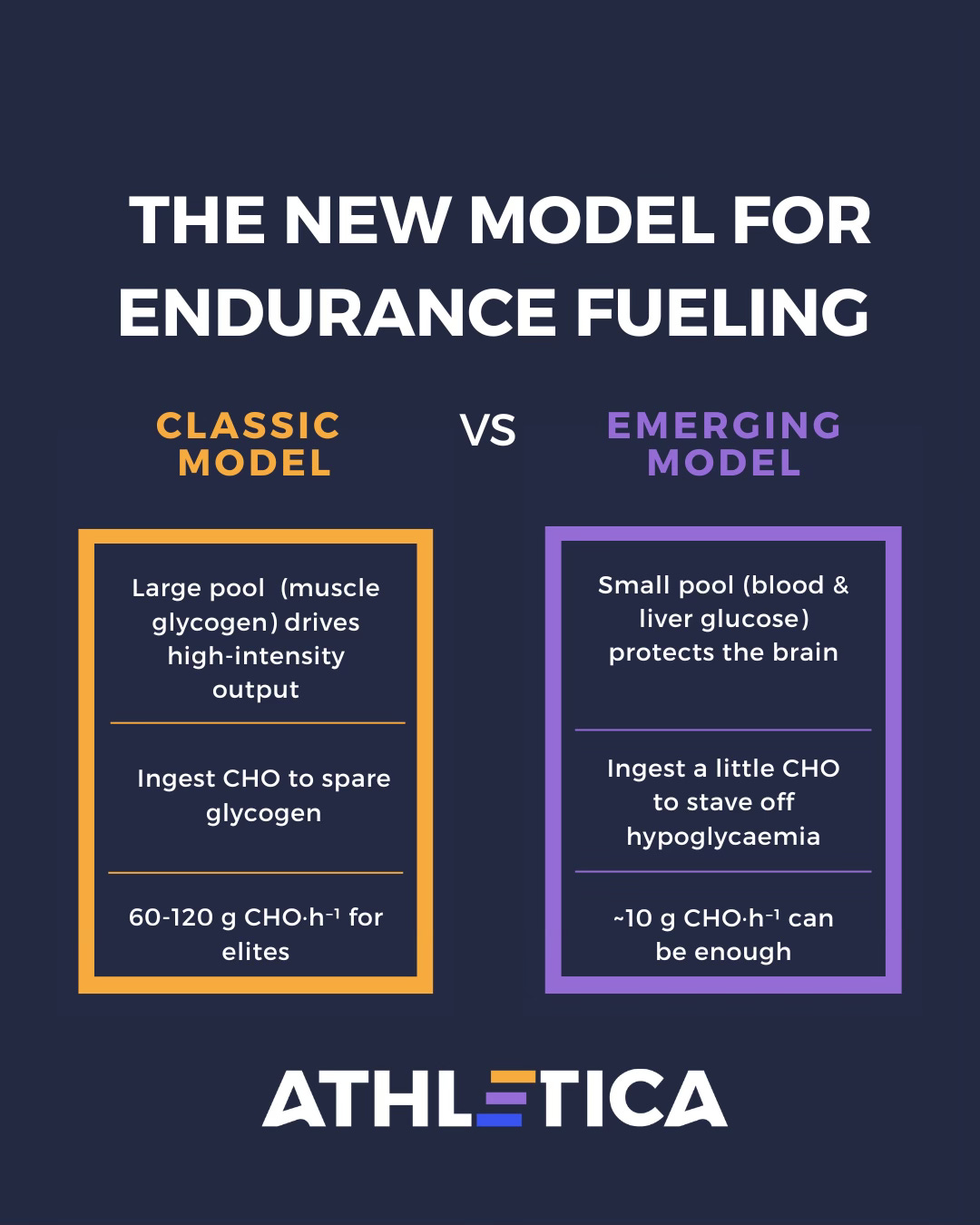Challenging Beliefs: Small Pool, Big Engine
The Catalyst —My 36-Hour Fasted ClimbA few weeks ago I finished recording a podcast with Prof. Tim Noakes and Dr. Phil Maffetone—two mentors whose work underpins much of my own coaching. Inspired (and a little rattled) by their latest thinking on the importance (or lack thereof) of muscle glycogen, I tested my own beliefs in the subsequent days:
One ride doesn’t rewrite physiology textbooks, but it demolished the story I’d told myself for two decades: you must start hard efforts with bulging muscle-glycogen stores.
“Only n = 1, but I needed to prove it to myself first.” – Me, mid-bonk epiphany Meet the Myth-Busters
We are always challenging beliefs because we want more out of our patients, out of our athletes.” – Phil Maffetone
“I realised I’d had it wrong for 33 years.” – Tim Noakes
In our conversation Tim laid out the bombshell that will headline his forthcoming 100-page review: muscle glycogen is a glucose sink, not the limiting fuel we thought. What really governs endurance performance is the small glucose pool—blood glucose topped up by liver glycogen. When that pool crashes (hypoglycaemia), the brain throws the red flag long before muscles “empty the tank.”
The New Model in Plain English
The key regulator? Insulin. High pre-exercise insulin locks fat in the garage; low insulin unlocks fat and lets you cruise on virtually unlimited fuel. Fresh Data to Back It UpA randomized crossover trial led by Prins et al. (2025) put competitive triathletes on either a high-carb (380 g·d⁻¹) or very-low-carb (40 g·d⁻¹) diet for six weeks. During a severe time-to-exhaustion test (70 % VO₂max):
My Athletica Data From Fueled and Fasted Ride
Snapshot: In the fasted state I rode faster and stronger while working at a lower heart-rate cost and showing tighter aerobic stability. The –13 % mWR confirms the PB-level effort (it naturally compares the prior ride against it in real time).
Practical Take-Aways for Athletes & Coaches
Note: medical conditions, ultra-long events and very hot climates demand extra nuance—test in training. Why This Matters Beyond the Finish LineLow-insulin, fat-adapted athletes often report:
Open Questions & Next Experiments
Want to Put Your Own Physiology to the Test?We’re recruiting everyday athletes for the FIELD study—a real-world look at how fueling strategies affect performance and recovery inside Athletica. Help us turn n = 1 stories into evidence-based coaching insights—and snag some personalised analytics along the way! Watch, Listen, SharePodcast – Full conversation with Noakes & Maffetone (YouTube link).
“The most important body part for athletes is their brain.” – Phil Maffetone Let’s keep feeding it with better questions—and fewer sugary distractions. See you on the climb, Paul Laursen, PhD |
Athletica AI Coach and Training Science
Smarter training starts here. Athletica’s newsletters deliver science-backed insights, expert tips, and AI-powered training updates for endurance athletes of all levels. Catch up on past editions and subscribe to stay ahead in your training journey.
Hi everyone, Over the past month, many of you experienced turbulence across Athletica. We know that when your training doesn’t work smoothly, explanations don’t matter. Outcomes do.Still, I want to briefly explain what happened, why it mattered, and where we are now. At its core, Athletica is not a chatbot or a dashboard. It’s a sports science system. The figure below shows the Athletica architecture. Raw data from your wearables doesn’t go straight to a screen or an AI response. It’s first...
Welcome to Inside Athletica Here, we share what we’re seeing behind the scenes: patterns emerging from athlete data, questions from our forum, support team and ambassadors, updates from partners, product developments, and the occasional lesson from lived experience. First, our newly improved Workout Wizard is currently in testing and will be available to all athletes very soon. Thank you to everyone who has helped us refine it. Second, applications for the Athletica Development Athlete (ADA)...
Hi everyone, First, I want to sincerely thank you for your patience and support over the past month as we rolled out the new Athletica Experience. Our team has worked relentlessly, and we are now seeing relative stability for around 98 percent of users. We know there is still work to do, particularly around re-architecting the Workout Wizard. This is important foundational work to ensure performance and reliability as we scale, and we truly appreciate your patience as the team builds this out...




